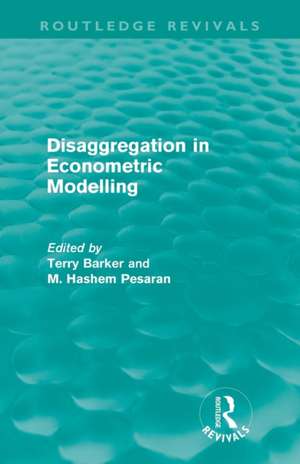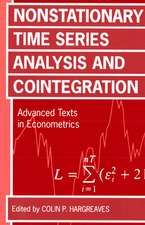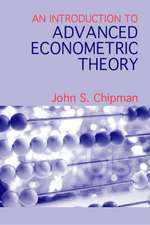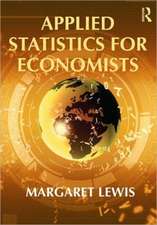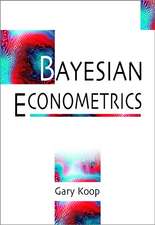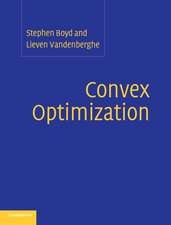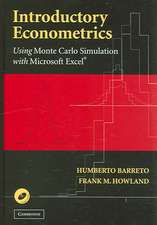Disaggregation in Econometric Modelling (Routledge Revivals): Routledge Revivals
Editat de Terry Barkeren Limba Engleză Paperback – 7 iun 2012
| Toate formatele și edițiile | Preț | Express |
|---|---|---|
| Paperback (1) | 178.53 lei 43-57 zile | |
| Taylor & Francis – 7 iun 2012 | 178.53 lei 43-57 zile | |
| Hardback (1) | 485.75 lei 43-57 zile | |
| Taylor & Francis – 24 ian 2011 | 485.75 lei 43-57 zile |
Din seria Routledge Revivals
- 9%
 Preț: 801.71 lei
Preț: 801.71 lei - 8%
 Preț: 432.64 lei
Preț: 432.64 lei -
 Preț: 153.83 lei
Preț: 153.83 lei -
 Preț: 245.88 lei
Preț: 245.88 lei -
 Preț: 309.79 lei
Preț: 309.79 lei -
 Preț: 258.73 lei
Preț: 258.73 lei - 9%
 Preț: 764.35 lei
Preț: 764.35 lei - 9%
 Preț: 903.42 lei
Preț: 903.42 lei -
 Preț: 311.18 lei
Preț: 311.18 lei -
 Preț: 357.45 lei
Preț: 357.45 lei - 9%
 Preț: 626.93 lei
Preț: 626.93 lei -
 Preț: 317.54 lei
Preț: 317.54 lei - 9%
 Preț: 764.30 lei
Preț: 764.30 lei -
 Preț: 257.01 lei
Preț: 257.01 lei -
 Preț: 238.40 lei
Preț: 238.40 lei -
 Preț: 259.48 lei
Preț: 259.48 lei - 9%
 Preț: 938.10 lei
Preț: 938.10 lei -
 Preț: 341.33 lei
Preț: 341.33 lei -
 Preț: 264.10 lei
Preț: 264.10 lei -
 Preț: 294.98 lei
Preț: 294.98 lei -
 Preț: 308.89 lei
Preț: 308.89 lei -
 Preț: 207.40 lei
Preț: 207.40 lei -
 Preț: 347.50 lei
Preț: 347.50 lei -
 Preț: 302.59 lei
Preț: 302.59 lei -
 Preț: 389.40 lei
Preț: 389.40 lei -
 Preț: 257.01 lei
Preț: 257.01 lei -
 Preț: 358.30 lei
Preț: 358.30 lei - 9%
 Preț: 640.91 lei
Preț: 640.91 lei - 9%
 Preț: 619.49 lei
Preț: 619.49 lei -
 Preț: 228.88 lei
Preț: 228.88 lei -
 Preț: 265.16 lei
Preț: 265.16 lei -
 Preț: 257.90 lei
Preț: 257.90 lei -
 Preț: 266.06 lei
Preț: 266.06 lei -
 Preț: 258.73 lei
Preț: 258.73 lei -
 Preț: 384.01 lei
Preț: 384.01 lei -
 Preț: 246.38 lei
Preț: 246.38 lei - 9%
 Preț: 832.08 lei
Preț: 832.08 lei -
 Preț: 266.20 lei
Preț: 266.20 lei -
 Preț: 294.53 lei
Preț: 294.53 lei - 18%
 Preț: 695.86 lei
Preț: 695.86 lei - 9%
 Preț: 934.96 lei
Preț: 934.96 lei - 5%
 Preț: 243.38 lei
Preț: 243.38 lei -
 Preț: 274.69 lei
Preț: 274.69 lei -
 Preț: 208.20 lei
Preț: 208.20 lei - 9%
 Preț: 659.19 lei
Preț: 659.19 lei -
 Preț: 259.69 lei
Preț: 259.69 lei - 9%
 Preț: 1038.47 lei
Preț: 1038.47 lei -
 Preț: 389.46 lei
Preț: 389.46 lei -
 Preț: 302.14 lei
Preț: 302.14 lei -
 Preț: 302.27 lei
Preț: 302.27 lei
Preț: 178.53 lei
Nou
Puncte Express: 268
Preț estimativ în valută:
34.17€ • 37.13$ • 28.72£
34.17€ • 37.13$ • 28.72£
Carte tipărită la comandă
Livrare economică 21 aprilie-05 mai
Preluare comenzi: 021 569.72.76
Specificații
ISBN-13: 9780415616638
ISBN-10: 0415616638
Pagini: 366
Dimensiuni: 138 x 216 x 19 mm
Greutate: 0.45 kg
Ediția:1
Editura: Taylor & Francis
Colecția Routledge
Seria Routledge Revivals
Locul publicării:Oxford, United Kingdom
ISBN-10: 0415616638
Pagini: 366
Dimensiuni: 138 x 216 x 19 mm
Greutate: 0.45 kg
Ediția:1
Editura: Taylor & Francis
Colecția Routledge
Seria Routledge Revivals
Locul publicării:Oxford, United Kingdom
Cuprins
1. Disaggregation in econometric modelling: an introduction Part I 2. Aggregation of time-series variables: a survey 3. On the dynamic specification of aggregated models 4. Aggregation versus disaggregation in forecasting construction activity 5. Aggregation problems in a model of wage formation and employment demand 6. Aggregation bias in labour demand equations for the UK economy 7. Optimal aggregation of linear net export systems 8. The choice of aggregate production functions in Mexican industries 9. Disaggregation of hte demand for hospital care 10. Aggregation in discrete choice models: an illustration of non-linear aggregation Part II 11. Macroeconomic and micoreconomic modelling: some issues 12. MICROFKA: integrating a micro labour-supply model and a macro model of the Dutch economy 13. Macro to micro linkage: some experiments with the UK commodity flow accounts 14. What determines the bank borrowing and liquid lending of UK companies? Explanations based on aggregated and disaggregated data
Descriere
In this book, first published in 1990, leading theorists and applied economists address themselves to the key questions of aggregation. The issues are covered both theoretically and in wide-ranging applications. Of particular intrest is the optimal aggregation of trade data, the need for micro-modelling when imoprtant non-linearities are present (for example, tax exhaustion in modelling company behaviour) and the use of a micro-model to stimulate labour supply behaviour in a macro-model of the Netherlands.
